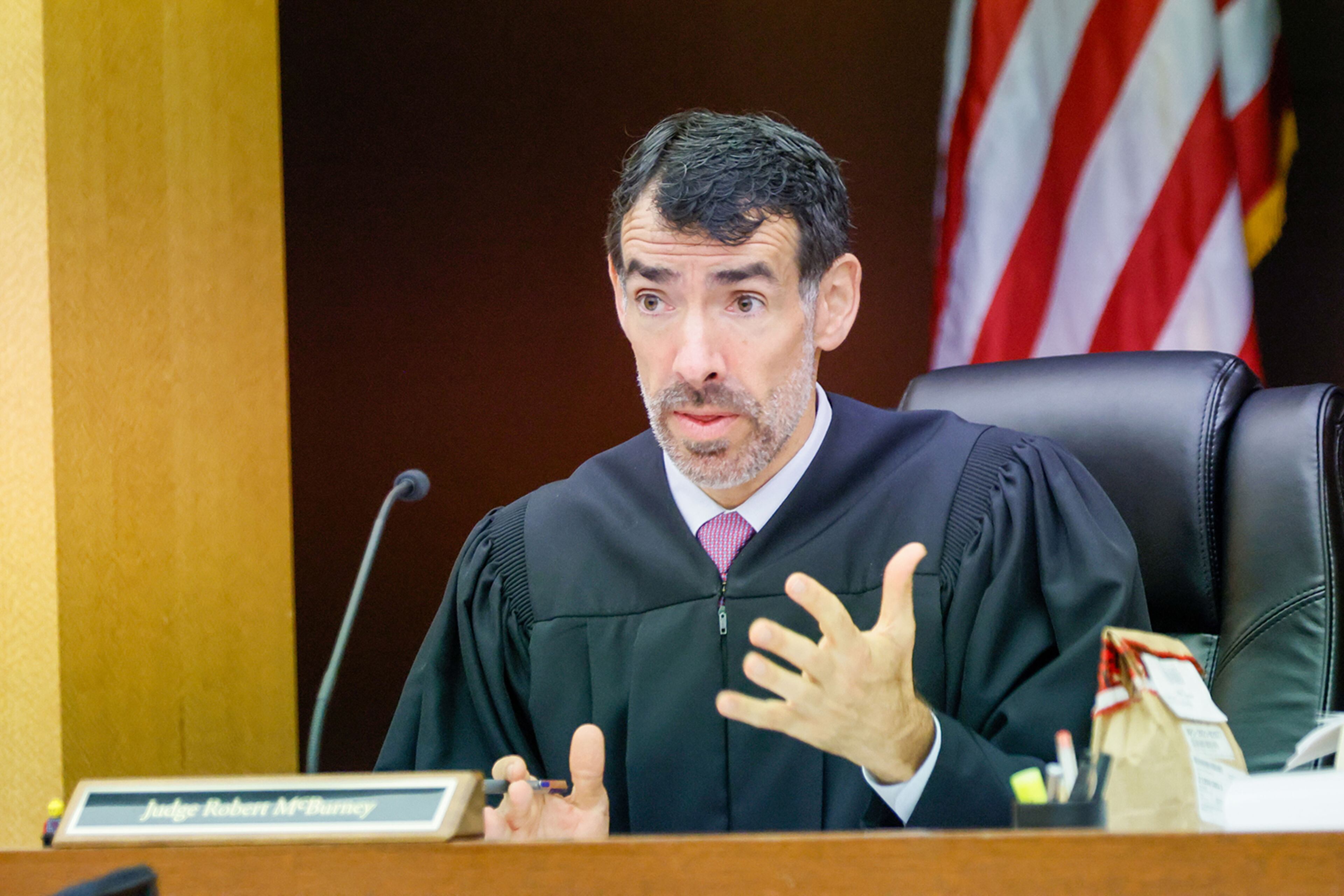Judge rejects Fulton election board member’s demand for more documents

A judge has rejected a Fulton County election board member’s demand for more documents she says she needs to certify the results of Tuesday’s election.
Last week, the board approved a list of documents it will review as it prepares to certify the results by 5 p.m. Nov. 12. Board member Julie Adams sought more information — including daily lists of complaints by poll workers, poll watchers and voters. And she wanted all the documents in electronic format.
Her fellow board members rejected her requests, citing security concerns and the burden Adams’ requests would put on workers during a busy election week. Adams filed a lawsuit seeking a court order requiring the election department to produce the information she wanted.
On Monday, Fulton County Superior Court Judge Robert McBurney rejected her request — and he cited Adams’ own actions for the decision.
Adams has been at the center of a Republican push to declare certification by local election boards as a discretionary duty. They say boards can decide not to certify if they suspect the results are not accurate. Proponents say local board members take oaths to ensure the results are correct and it makes no sense to require them to certify results they doubt.
Critics say certification by local boards is mandatory, and Georgia law provides other means — such as election challenges in court — to investigate fraud and misconduct. They fear the push for discretionary certification is part of a plan by Donald Trump supporters to overturn the election in Georgia if he loses.
At least 19 local election board members in Georgia — including Adams — have voted not to certify election results since 2020.
A long line of court cases has found certification by local boards to be mandatory. And McBurney ruled likewise in another recent lawsuit brought by Adams.
The judge also ruled Adams was entitled to prompt access to documents not protected from disclosure by law.
Adams’ latest lawsuit sought to enforce that order. But on Monday, McBurney rejected her request. He noted that Adams appealed his order — which means it can’t be enforced until higher courts rule on her appeal.
McBurney noted the irony in his decision Monday.
“While it is flattering to see the final order (from the previous case) feature so prominently in a subsequent piece of litigation, it is also futile,” the judge wrote. “The final order has been stayed — by plaintiff’s own doing.”




